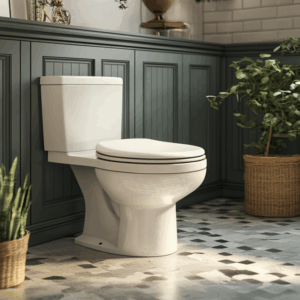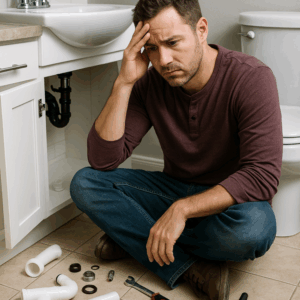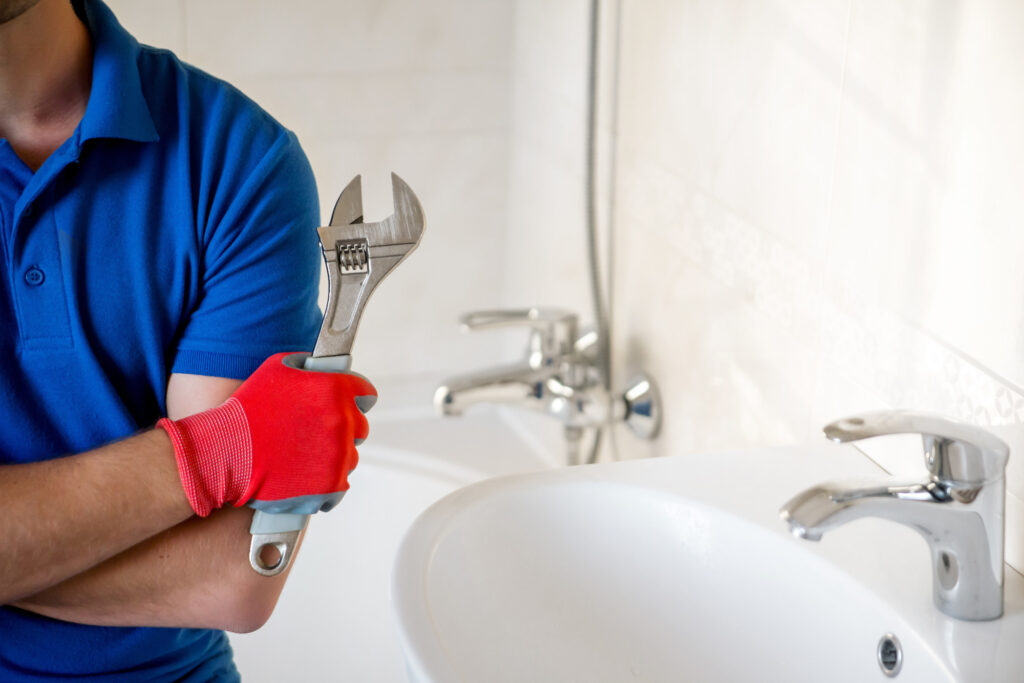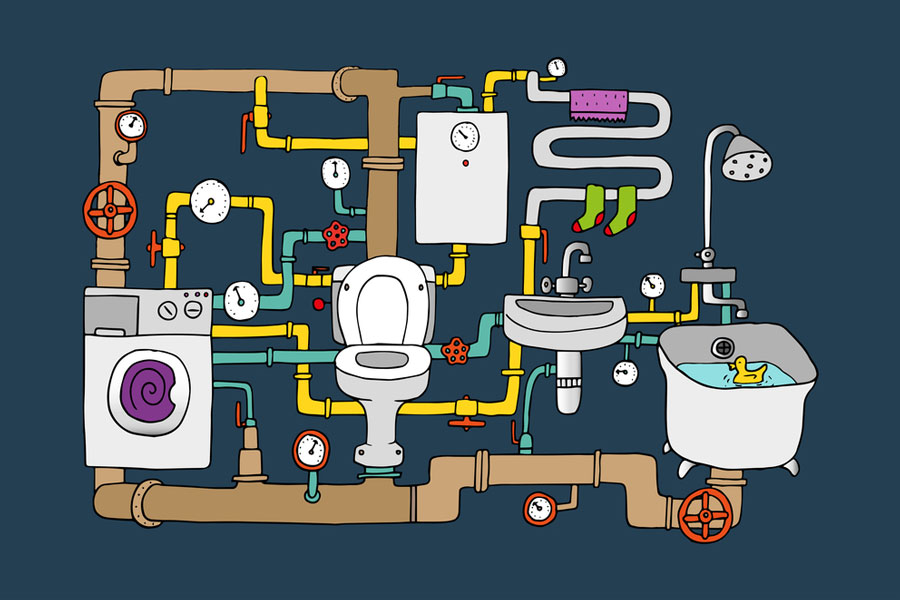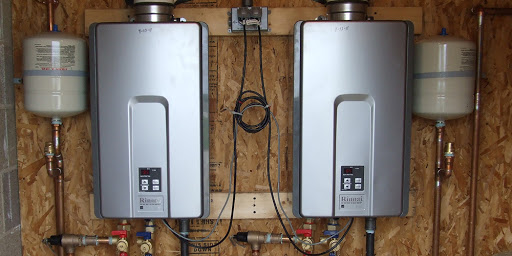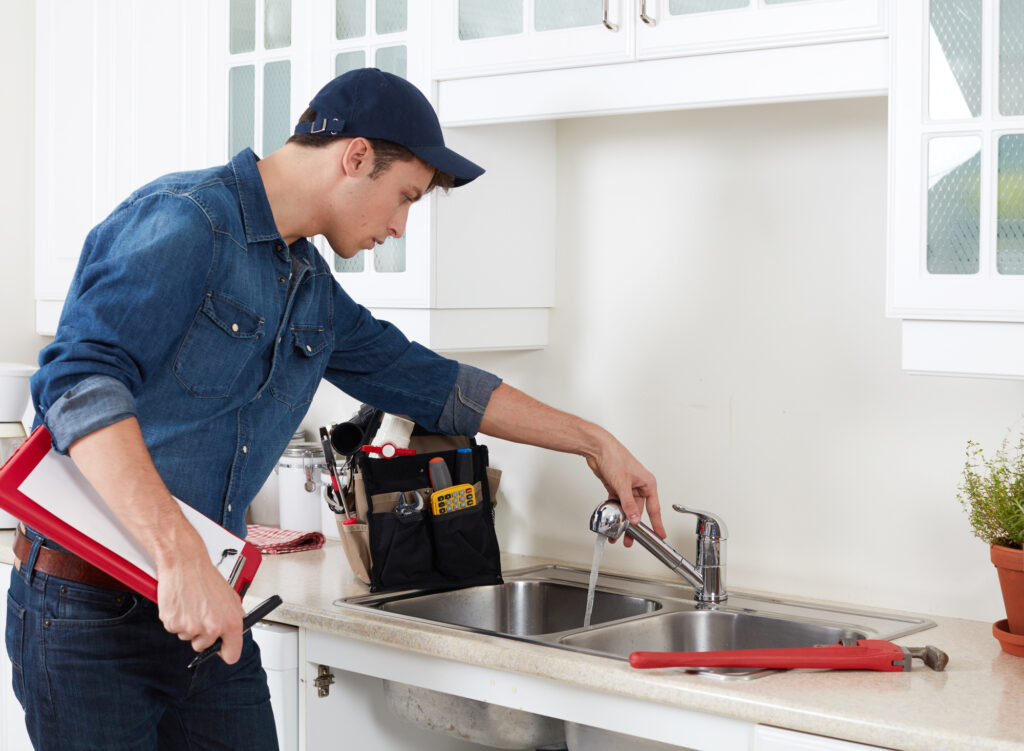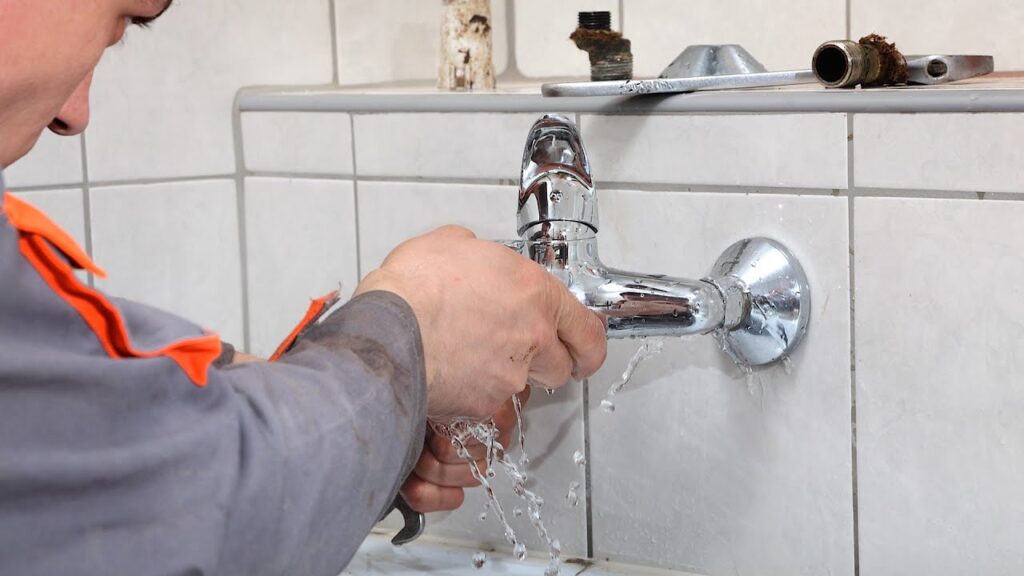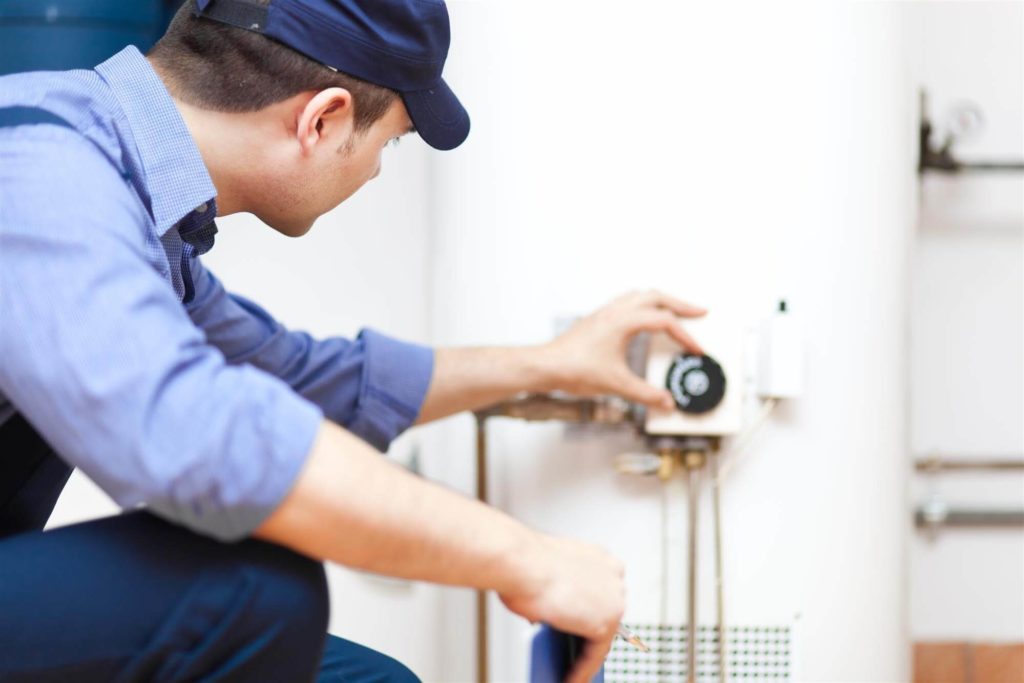How Long Does It Take to Replace a Toilet?
(What DIYers and Charlotte Homeowners Should Know)
Toilet installation might seem straightforward, especially after reading online guides. However, once you get into the process, the timing depends on more than just the steps listed. If you live in Charlotte, NC, and plan to replace your home toilet, the question “How long does it take to replace a toilet?” needs a realistic, experience-based answer.
Related Resource
For a step-by-step overview of toilet installation, check out the full Redfin article:
How to Install a Toilet: A Guide to Bathroom Transformation | Redfin (Parent company of ApartmentGuide and Rent.)
Typical Replacement Time for DIYers vs. Professionals
- First-time DIYer: 3 to 4 hours. This includes reading instructions, gathering tools, removing the old toilet, and carefully installing the new one.
- Experienced DIYer: 1.5 to 2 hours, assuming all parts are on hand and no complications arise.
- Professional plumber: 30 to 60 minutes. A licensed plumber has likely replaced hundreds of toilets and knows how to quickly spot and resolve potential issues.
- Add time for complications: Damaged flanges, uneven floors, shutoff valve issues, or wax ring leaks add time.
What Can Slow Down Toilet Replacement?
Toilet replacement isn’t always just a swap. Unexpected problems can arise, either during toilet removal or installation, especially in older Charlotte homes.
- Damaged or sunken toilet flange
- Shutoff valve that won’t fully close or leaks
- Uneven or soft subfloor
- Residual water that hasn’t been fully drained
- Toilet doesn’t align easily with bolt holes or flange
- Lack of tools or missing parts
- An actual drain blockage or partial blockage which can mimic the effect of a leaking wax ring
Each issue adds time, stress, and potential for water damage.
Local Factors That Affect Toilet Replacement in Charlotte
Charlotte homeowners face a few region-specific challenges that can influence the time and complexity of toilet replacement:
- Older plumbing in historic neighborhoods: In areas like Dilworth and Plaza Midwood, older cast iron or lead pipes can complicate shutoff valve replacements or expose flange corrosion.
- Foundation settling in newer developments: Neighborhoods like Ballantyne often experience slight shifts in floor level due to soil conditions. This can cause flanges to sit too low, requiring spacers or adjustments for a watertight seal.
- Humidity and moisture concerns: Charlotte’s humid climate increases the risk of hidden moisture, mold, or subfloor damage around toilet bases, particularly in bathrooms with limited ventilation.
- Code compliance in Mecklenburg County: While most toilet replacements don’t require a permit, any updates involving supply lines or fixture relocation must meet local code. An experienced plumber can help ensure your upgrade stays compliant.
These local factors are why toilet swaps in Charlotte aren’t always as simple as online guides make them seem.
When to Call a Professional
DIY can be rewarding, but there are some signs it’s better to bring in a licensed plumber who offers toilet installation services.
- The flange is loose, broken, or below floor height (or misaligned), or the wrong material
- There’s visible mold or signs of a past leak
- The shutoff valve or supply line is corroded
- You’re upgrading multiple fixtures or remodeling the bathroom
- You want the job done quickly, cleanly, and up to code
Pathmaker Plumbing has replaced hundreds of toilets across Charlotte. We understand the quirks of local plumbing systems and can help prevent hidden problems before they start.
How to Speed Things Up
Whether you’re DIYing or supervising a professional, these tips help streamline the process:
- Have all tools ready (bucket, towels, wrench, caulk, replacement bolts, etc.)
- Place towels or paper towels around the base and fittings to detect leaks early
- Prep the area by fully draining and drying the original toilet
- Enlist a second set of hands to help align and lift
Efficient toilet installation depends on skill, tools, and understanding.
Final Thoughts
Replacing a toilet doesn’t have to be an all-day project, but it rarely goes faster than expected. Knowing your skill level, your home’s condition, and what signs suggest a larger issue can help you decide whether to DIY or call in a pro.
If you’re in the Charlotte area and want reliable help, Pathmaker Plumbing is here to make the process fast, clean, and code-compliant. Reach out today for friendly, professional service.
Why Charlotte Homeowners Should Hire a Professional Plumber
When something goes wrong with your plumbing, searching for a quick fix is tempting—especially with DIY videos just a click away. But Charlotte’s plumbing systems aren’t always that simple. With neighborhoods built in every decade since the early 1900s, what works in one part of the city might be a mistake in another. A small leak or clogged drain could point to more significant issues hidden behind your walls or under your yard.
Hiring a professional plumber isn’t just about fixing the problem—it’s about understanding where you live and what your home needs. And in Charlotte, that local experience matters.
Charlotte’s Plumbing Problems Are Older Than They Look
Charlotte’s growth has created a patchwork of plumbing systems across the city. Each neighborhood has its own quirks—and potential risks:
- Dilworth, Plaza Midwood, and other early 20th-century neighborhoods often rely on aging galvanized steel or cast iron pipes. These materials corrode, leading to leaks, water discoloration, or restricted flow.
- Homes built in the ’80s and ’90s—especially in areas like Ballantyne and South Charlotte—commonly used polybutylene pipes, which are known for failing due to design flaws.
- Newer developments in places like Highland Creek or Berewick may have updated materials, but they’re not immune to issues like poor installation or shifting foundations.
Professional plumbers with local experience know what to expect in each area—and how to spot potential issues and fix them at the source instead of just patching the symptoms.
Charlotte’s Water Pressure Can Be Surprisingly High (or Low)
Water pressure problems in Charlotte aren’t just about elevation—they’re influenced by the city’s pump zones, aging infrastructure, and how far a neighborhood is from major water sources.
- In neighborhoods like Ballantyne, homes often have very high water pressure, despite being far from treatment facilities. This is due to how the city compensates with powerful pump stations. Many homes in the area need pressure-reducing valves (PRVs) to protect plumbing systems from long-term damage.
- Meanwhile, other areas benefit from more stable and moderate pressure, often due to newer infrastructure and more direct service lines.
Charlotte Water also notes that low-lying areas may naturally receive higher pressure due to gravity, while homes on higher ground may experience lower pressure—unless boosted by infrastructure.
A professional plumber who understands Charlotte’s pressure zones can help identify your home’s risk and recommend appropriate pressure regulation.
Sewer Line Problems Are a Growing Concern
As Charlotte’s infrastructure ages, more homeowners are dealing with sewer line issues—often without realizing it until backups or flooding occur.
- Tree roots are a common culprit in older areas, breaking into clay or cast iron pipes.
- Bellies or sags in the line caused by soil settling can trap waste and lead to blockages.
- Some homes face problems tied to old materials or incorrect slope in their sewer layout.
Professional plumbers use video inspections to find the exact cause of the issue and recommend repairs before a minor concern turns into a full-blown emergency.
Plumbing Permits and Codes Aren’t Optional in Charlotte
Even a seemingly simple plumbing project—like installing a new water heater—often requires a permit in Mecklenburg County. Work that doesn’t meet code can:
- Create safety risks
- Result in fines
- Cause problems during home inspections or sales
Licensed plumbers ensure your project is fully compliant with Charlotte’s codes and handle the permitting process for you. That means less stress and no surprises down the line.
DIY Repairs Can Do More Harm Than Good
Trying to save money with a DIY repair may seem smart—but without proper training, it’s easy to:
- Misdiagnose the problem
- Overlook warning signs
- Cause water damage or mold
- Create a repair that fails under pressure
Professional plumbers bring diagnostic tools and years of hands-on experience, helping you avoid the risk and expense of a repair gone wrong.
What a Local Pro Really Brings to the Table
Charlotte plumbers deal with these challenges every day. When you hire professional plumbing services from a local business, you’re getting more than a one-time fix—you’re getting someone who understands your home’s history and how to protect it.
Common services include:
- Plumbing Leak Repairs: Prompt, accurate repairs to prevent water damage and mold
- Sewer Line Services: Inspection, cleaning, or replacement for peace of mind
- Water Heater Maintenance & Replacement: Safe, code-compliant service
- Fixture Installations: Done right the first time, with lasting results
Choose Local. Choose Trusted.
Charlotte’s plumbing issues don’t come with a manual—and guessing wrong can be costly. Pathmaker Plumbing knows this city, its systems, and its quirks. From leaky pipes to full sewer replacements, we’ve seen it all—and we’re here to help.
Put your home in experienced plumbers. Contact Pathmaker Plumbing today.
Frequently Asked Questions
Has Charlotte seen more plumbing problems in recent years?
Yes, especially with the city’s rapid development and aging infrastructure. Different neighborhoods face a wide range of plumbing issues, from minor leaks in older bungalows to major pipe failures in newer developments with poorly installed systems.
Does Charlotte really have water pressure issues?
Absolutely. Some areas—like Ballantyne—experience excessively high pressure, which can wear out pipes and appliances without a pressure-reducing valve and a thermal expansion tank. Others face low or inconsistent pressure depending on elevation and pump coverage. A local plumber can help ensure your system is balanced and safe.
What are the risks of DIY plumbing repairs?
Charlotte’s plumbing quirks mean that even small issues may have hidden causes, especially in older or quickly developed areas. DIY projects often overlook these factors, leading to bigger, costlier problems later. In addition, DIY plumbing repairs frequently fail to address the underlying cause of an issue, and even minor issues can quickly escalate if handled improperly. Many DIY repairs lead to accidental damage, mold growth, or code violations, especially in homes with complex layouts or older plumbing systems.
Are plumbing problems really a health risk?
Absolutely. Leaks or sewer backups can lead to water contamination, mold, and other health hazards. Hiring a licensed plumber ensures your home stays safe, sanitary, and structurally sound.
How do local plumbers prevent future problems?
Understanding how plumbing systems vary by neighborhood, a local pro can provide targeted maintenance, pressure regulation, and early detection to avoid emergencies. With regular maintenance, inspections using specialized tools, and upgrades tailored to your home and neighborhood, professionals can spot trouble early and keep your system in top shape.
Pathmaker Plumbing – Your Partner in Green and Sustainable Plumbing Solutions. We are a family-owned and operated business offering clogged drains, plumbing repairs, leak detection, and water heater services in the Charlotte area. With our commitment to satisfaction guaranteed and fair upfront pricing, we provide reliable solutions and exceptional customer service on every project.
Pathmaker Plumbing
5676 Underwood Ave,
Charlotte, NC 28213, United States
(704) 733-7507
https://pathmakerplumbing.com/
Learn more about Pathmaker Plumbing:
The Complete Guide to Choosing a Plumber for Homeowners
Did you know that homeowners spent up to $6,000 on average on repairs and maintenance last year? A significant portion of these expenses is attributed to plumbing services. That’s why choosing a plumber you can trust is crucial for maintaining your home’s plumbing system and managing your maintenance costs.
In this guide, we’ve provided you with comprehensive information to help you make an informed decision when selecting a plumber.
Understanding Your Plumbing Needs
One of the first steps to finding the right plumber is to understand your plumbing needs. As a homeowner, you might face various issues with your residential plumbing system.
These can range from simple repairs like fixing a leaky faucet to more complex tasks like installing a new water heater. It’s important to identify the type of plumbing service you need.
There are three main types of plumbing services: installation, repair, and maintenance. Installation involves setting up new plumbing fixtures or pipes. Repair deals with fixing any issues that may have developed over time.
Maintenance, on the other hand, involves regular checkups to keep your plumbing system in top condition. Assess the urgency of your situation so that you can communicate your needs clearly to potential plumbers.
Finding a Plumber
Once you know what you need, it’s time to search for the right plumber. There are several ways to find options for plumbers in your area.
You can start by checking local directories and online platforms like Google, Yelp, or Angie’s List. These resources often provide information on plumbers nearby and can include reviews and ratings from other customers.
Another great way to find a plumber is by asking for referrals from friends, family, and neighbors. People in your network who have had plumbing work done can share their experiences and recommendations. This can give you a better idea of which plumbers are reliable and trustworthy.
Finally, you can also look for plumbers who are members of professional associations or hold certifications in their field. These credentials can indicate that the plumber has the necessary skills and plumbing installation experience to handle your project.
Evaluating Potential Plumbers
After you have a list of potential plumbers, it’s time to evaluate them based on their credentials and experience. Firstly, ensure that the plumber you’re considering is licensed and insured.
A license is proof that they have met the required standards and regulations in your area. Insurance, on the other hand, protects you from any liability in case of accidents or damages during the project.
Next, consider the plumber’s experience. Find out how long they have been in business and what types of projects they have handled in the past.
A plumber with several years of experience is more likely to have encountered and resolved various plumbing issues. This can be a strong indicator of their expertise and reliability.
Reputation and reviews are also crucial factors to consider when choosing a plumber. Check online reviews and ratings to see what previous customers have to say about their work. Look for patterns in the feedback, such as consistently positive comments about:
- The plumber’s punctuality
- Quality of work
- Communication skills
You can also ask the plumber for testimonials or case studies to learn more about their past projects.
Finally, assess the plumber’s communication and customer service. You want a plumber who is responsive, listens to your concerns, and addresses your questions in a clear and simple manner.
A good plumber should be able to explain complex topics in a way that is easy to understand, even for those who are not familiar with plumbing systems. This will make it easier for you to make informed decisions about your plumbing needs.
Comparing Quotes and Pricing
When you have narrowed down your list of potential plumbers, it’s time to compare their quotes and pricing. Start by requesting written estimates from each plumber. This will help you understand the costs involved in the plumbing system repair or installation you need.
A written estimate should provide a breakdown of costs, including:
- Labor costs
- Material costs
- Any additional fees or expenses
Labor costs refer to the amount the plumber charges for their work. Material costs cover the price of any parts or equipment needed for the job. Additional fees might include charges for travel, permits, or emergency services.
When comparing plumbing service costs, it’s essential to focus on the value provided by each plumber, not just the price. A lower-priced quote may not always be the best option if it sacrifices quality or results in future problems. Consider the plumber’s experience, reputation, and the quality of materials they use when making your decision.
Making the Final Decision
Before choosing the right plumber for your needs, take some time to assess their availability and response time. You want a plumber who can complete your project promptly and efficiently, especially in urgent situations. Find out how quickly they can begin work and what their estimated timeline for completion is.
Evaluate the warranty and guarantees offered by the plumber. A good plumber will stand behind their work and offer a warranty for their services. This ensures that if any issues arise after the job is done, the plumber will address them without additional costs to you.
When you have made your decision, make sure to sign a contract or service agreement with the plumber. This document should outline:
- The scope of work
- Materials
- Costs
- The expected completion date
It serves as a legal record of your agreement and protects both you and the plumber in case of disputes.
Tips for Maintaining a Good Relationship with Your Plumber
Once you have chosen a plumber, it’s important to maintain a good relationship with them to ensure a smooth and successful project. Start by communicating your needs clearly and concisely. Make sure the plumber understands what you expect from them and any specific concerns you have about the job.
Being proactive with plumbing maintenance can also help you maintain a positive relationship with your plumber. Schedule regular checkups to keep your plumbing system in good shape and prevent issues from becoming more severe.
Finally, provide feedback and reviews to your plumber after the project is complete. This can help them improve their services and also assist other homeowners in finding a reliable plumber. Sharing your experience and recommendations with others can contribute to a better overall experience for everyone involved.
Choosing a Plumber Made Easy
Investing time and effort into choosing a plumber is essential for ensuring the proper maintenance and repair of your home’s plumbing. By following the steps outlined in this guide, you can confidently select the best professional to handle your plumbing needs.
Don’t hesitate to contact Pathmaker Plumbing for a reliable and experienced plumbing expert, committed to providing top-quality service.
Learn more about Pathmaker Plumbing:
The Main Components of a Plumbing System in a House
Your home’s plumbing system is one of its most essential yet overlooked elements. Whether planning a renovation or trying to understand a leak, knowing how the plumbing system in a house works can save time, stress, and money. Every residential plumbing system has three major parts that keep water flowing in and out safely and efficiently.
The Three Core Systems of a Home Plumbing System
A complete residential plumbing system is made up of three interconnected but distinct subsystems:
- Water Supply System – brings clean, pressurized water into the house
- Drain-Waste-Vent (DWV) System – removes wastewater and maintains air pressure in the drain pipes
- Plumbing Fixtures and Appliances – where the user accesses and controls water
Together, this complex network manages every drop of water that enters and leaves your home.
Water Supply System
The water supply system is responsible for delivering pressurized, clean water throughout the home. It begins at the water meter and branches out to every faucet, appliance, and fixture that uses water. Here are the key components:
- Water Service:This underground pipe connects your home to the municipal water source or a private well.
- Shut-Off Valve: Sometimes, but not always, located near where the water line enters the home, shutoff valves control the water supply to the entire house and lets you stop all water flow in case of a leak or plumbing emergency.
- Water Meter: Usually found at the curb or just inside your property line, the meter tracks how much fresh water your household uses.
- Pressure Regulator: Not every home has one, but this device helps manage water pressure to protect your pipes and fixtures from damage.
- Water Distribution System: The cold and hot water pipes that move water throughout the house—cold directly from the supply, and hot from your water heater.
The entire water supply system depends on maintaining consistent pressure and clean, corrosion-resistant pipes. If you’ve noticed weak water flow or fluctuating temperatures, there may be an issue in this part of your plumbing.
Drainage System
While the water supply system brings fresh water into your home, the drainage system removes waste matter and regulates the air pressure within the pipes to keep everything flowing smoothly.
Key components of the DWV system include:
- Drain Pipes: These carry waste water away from sinks, showers, toilets, and appliances. Drainage pipes slope downward using gravity to keep things moving.
- Traps (P-Traps): Located beneath most fixtures, these curved pipes hold a small amount of water to block sewer gases from entering the home.
- Vent Pipes: These extend up through the roof and allow air to enter the drainage system. Without proper ventilation, water can siphon out of the traps and cause bad odors or slow draining.
- Sewer Line: This large pipe carries all household waste water and solid waste from the main drain out to the city’s sewer system or your private septic tank.
If you ever hear gurgling drains, smell sewage gases indoors, or experience slow draining fixtures, the issue may lie in the drainage system—and it shouldn’t be ignored. These issues often point to blockages or pipe damage and may require sewer line repair or drain cleaning.
NOTE: Pathmaker Plumbing can video inspect these pipes. Video inspection technology allows plumbers to see inside drainage pipes in real time, providing a clear, high-resolution view of the pipe’s interior. This process enables us to accurately identify the exact location, cause, and severity of issues such as blockages, leaks, cracks, corrosion, or tree root intrusions without any guesswork or unnecessary digging.
Plumbing Fixtures and Appliances
Plumbing fixtures and appliances are the visible, functional parts of your home’s plumbing system—where water is used, and wastewater exits. These include the everyday items you interact with, all connected to both the water distribution and drainage systems.
Key fixtures and appliances include:
- Faucets and Sinks: Found in kitchens, bathrooms, and laundry areas, faucets provide access to hot and cold water for washing and cleaning.
- Toilets: These fixtures use water pressure and gravity to remove waste directly into the drainage system.
- Showers and Bathtubs: Designed for personal hygiene, these rely on balanced water pressure and proper drainage for comfort and safety.
- Dishwashers and Washing Machines: These appliances are connected to both the water supply lines and the drainage system, using valves, hoses, and pumps to manage water intake and disposal.
- Water Heaters: Whether tank-style or tankless, water heaters are essential for delivering hot water throughout the home.
Each of these components plays a vital role in daily life—and when one fails, it can disrupt your entire plumbing system. For example, If your water heater can’t keep up with demand or shows signs of corrosion, it may be time to schedule a hot water heater repair. Regular inspection and maintenance can help catch small issues before they lead to costly repairs.
Signs Your Plumbing System Needs Attention
A well-functioning plumbing system should be quiet, consistent, and clean. If you notice any of the following warning signs, it’s time to investigate—or call in a pro:
- Low water pressure in one or more fixtures
- Unusual noises like banging, gurgling, or hissing
- Slow-draining sinks, tubs, or showers
- Foul odors coming from drains or around the house
- Unexplained increases in your water bill
- Damp spots, puddles, or water stains on floors or walls
- Leaky faucets can waste a significant amount of water over time
Ignoring these symptoms can lead to bigger problems like water damage or mold growth. Leaky faucets, dripping pipes, or moisture under sinks often signal plumbing issues that a professional should handle. Don’t wait—schedule a repair. Addressing them early often means faster, less expensive repairs.
Preventative Plumbing Tips for Homeowners
You don’t need to wait for signs of leaks or a pipe burst to take care of your home, nor must you be a professional plumber to keep your system in good shape. Understanding plumbing basics and taking simple steps will help you avoid many typical plumbing issues.
- Know where your main shut-off valve is in case of leaks
- Avoid pouring grease or food waste down kitchen drains
- Use drain screens in tubs and showers to catch hair and debris
- Flush your water heater annually to remove sediment buildup
- Inspect exposed pipes periodically for rust, drips, or corrosion
- Have your plumbing inspected professionally every couple of years—especially in older homes
Basic maintenance helps extend the life of your plumbing system and saves you money in the long run.
FAQs About the Plumbing System in a House
What’s the difference between the water supply and the drainage system?
The water supply system brings in clean, pressurized water; the drainage system (or DWV) removes wastewater using gravity and air vents. They work together but flow in opposite directions.
Why do my pipes make banging or gurgling noises?
Banging (water hammer) may be caused by sudden pressure changes when water flow stops quickly. Gurgling usually points to a venting issue or partial clog in your drainage system.
Do all homes have a pressure regulator?
Not all homes have a pressure regulator, but they are common in areas with high or variable water pressure. When a PRV is present, especially with a water heater, a thermal expansion tank is recommended to manage pressure increases from heated water. Together, they help maintain a safe and efficient plumbing system.
Is it normal to have different water pressure in different parts of the house?
Slight differences can be normal, but large variations may indicate partial blockages, old plumbing, or failing valves.
What kind of pipes should my home have?
Modern homes often use PEX or copper pipes for water supply, and PVC for drainage. Older homes might still have galvanized steel or cast iron, which can corrode over time.
Need Help with Your Home Plumbing System?
Understanding the major components of your home’s plumbing system is a great first step—but when something goes wrong, it’s best to bring in a professional plumber. Whether you’re dealing with low water pressure, clogged drains, or a sudden leak, Pathmaker Plumbing is here to help.
We’ve proudly served Charlotte, NC homeowners for years with fast, honest, and expert plumbing services. From water heater repairs to full sewer line replacements, we handle it all.
👉 Ready for a service call or inspection? Contact the experts and speak with a licensed plumber near you.
Learn more about Pathmaker Plumbing:
How a Tankless Water Heater Can Save You Money
Energy efficiency has become an essential aspect of modern life. With an increasing concern for the environment, the need for cost-effective and sustainable energy usage has become more important than ever. One area where we can make a significant impact on our energy consumption is in our homes. In this article, we will explore how a tankless water heater can help maximize energy efficiency and save you money.
Traditional Water Heaters
First, let us take a look at how traditional water heaters work. Traditional water heaters work by storing a large tank of water, which is heated and kept at a constant temperature. As you use hot water, the tank is refilled with cold water, which then needs to be heated again. This process is repeated throughout the day, even when there is no demand for hot water, resulting in a significant energy loss.
The Efficiency and Benefits of Tankless Water Heaters
In contrast, tankless water heaters, also known as on-demand water heaters, work by heating water as it flows through the unit. This means that the water is only heated when needed, and there is no need for a storage tank. As a result, tankless water heaters can be up to 34% more energy-efficient than traditional water heaters, according to the U.S. Department of Energy.
Another advantage of tankless heaters is that they are typically more compact than traditional water heaters. This means that they take up less space in your home and can be installed in areas where traditional water heaters cannot. They are also less likely to leak, as they do not store large amounts of water.
One of the significant advantages of tankless heaters is the cost savings. While the upfront cost of a tankless water heater may be higher than a traditional water heater, the long-term savings are significant. Because tankless water heaters only heat water when needed, they use less energy overall. This means that your energy bills will be lower, and you will save money in the long run.
In addition to cost savings, tankless water heaters also offer other benefits. For example, because they do not store large amounts of water, there is no risk of the water becoming contaminated. This makes them a safer option for families with young children or elderly individuals. They also provide an endless supply of hot water, so you never have to worry about running out of hot water in the middle of a shower.
Another advantage of tankless water heaters is that they have a longer lifespan than traditional water heaters. While traditional water heaters typically last 10-15 years, tankless water heaters can last up to 20 years with proper maintenance. This means that you will not need to replace your water heater as often, which can also save you money in the long run.
What to Look for in a Tankless Water Heater
When considering a tankless water heater, it is essential to consider the size of your home and your hot water usage. Tankless water heaters are available in various sizes, and it is important to choose the right size for your home to ensure that you have enough hot water when you need it. You should also consider the flow rate of your faucets and appliances to ensure that the tankless water heater can meet your hot water demands.
In conclusion, maximizing energy efficiency is an essential aspect of modern life. One way to do this is by using a tankless water heater. By only heating water when needed, tankless water heaters are up to 34% more energy-efficient than traditional water heaters. They also offer cost savings, a longer lifespan, and other benefits such as a continuous supply of hot water and a smaller footprint. If you are looking to reduce your energy consumption and save money in the long run, a tankless water heater may be the right choice for you.
Professional Installation and Maintenance
For the best performance and energy efficiency, it is essential to have your tankless water heater professionally installed. A qualified technician will ensure that all parts are correctly connected and functioning properly. It is also recommended that you have your tankless water heater serviced regularly by a professional in order to maintain peak performance. Regular maintenance can help extend the life of your tankless water heater and maximize its energy efficiency.
By investing in a tankless water heater and having it professionally installed and serviced, you can save money on your energy bills while ensuring a continuous supply of hot water.
Learn more about Pathmaker Plumbing:
How do I find a good local plumber
When it comes to finding a good local plumber in Charlotte, NC, there are a few key things that you can do to make sure you’re getting the best service possible. Whether you’re dealing with a leaky faucet, a clogged drain, or a broken pipe, having a reliable and trustworthy plumber can make all the difference. Here are some tips on how to find a good local plumber.
1. Ask for referrals
One of the best ways to find a quality local plumber is to get referrals from family, friends, and neighbors. Maybe someone you know has had a recent positive experience with a particular plumber. Ask for specific details about the plumber’s work, such as their timeliness, professionalism, and pricing.
2. Check online reviews
In addition to asking for referrals, you can also check online reviews to get an idea of a plumber’s reputation. Look for reviews on websites like Yelp, Google, and Angie’s List. Be sure to read both positive and negative reviews, and pay attention to how the plumber responds to any negative feedback.
3. Verify licensing and insurance
Before hiring a plumber, make sure they are licensed and insured. A licensed plumber has met certain standards and has the necessary skills and knowledge to perform plumbing work. Insurance is also important in case something goes wrong during the job. Don’t be afraid to ask for proof of licensing and insurance.
4. Get multiple quotes
It’s always a good idea to get multiple quotes from different plumbers before making a decision. This will help you compare pricing and services, and ensure that you’re getting a fair deal. Be sure to ask for a detailed breakdown of the costs, including labor, materials, and any additional fees.
5. Ask about warranties
A good plumber should offer some sort of warranty or guarantee on their work. Ask about the warranty and what it covers before hiring a plumber. This will give you peace of mind in case something goes wrong after the job is completed.
6. Check for availability
Make sure the plumber you hire is available when you need them. If you have an emergency, you don’t want to wait around for hours or days for a plumber to show up. Ask about their availability and response times before hiring them.
7. Look for experience
Experience is key when it comes to plumbing. A plumber with years of experience will have encountered a wide range of plumbing issues and will have the knowledge and skills to handle any situation. Look for a plumber with at least a few years of experience under their belt.
In conclusion, finding a good local plumber can take some time and effort, but it’s worth it in the long run. By following these tips, you can ensure that you’re hiring a reliable and trustworthy plumber who will get the job done right. Remember to ask for referrals, check online reviews, verify licensing and insurance, get multiple quotes, ask about warranties, check for availability, and look for experience. With these tips in mind, you’ll be well on your way to finding a good local plumber.
Need a plumbing service for your home in Charlotte, NC? Contact Pathmaker Plumbing
How to Fix a Leaky Pipe like a Professional
A leaky pipe can be an annoying problem and cause undue stress when it needs to be fixed. It is important to know the steps involved in repairing a pipe, as this will help you save time, money, and the headache of having a plumber over. This guide will provide you with the steps for repairing leaky pipes like a professional.
What are some common causes of leaky pipes?
Some of the most common causes of a leaky pipe include corrosion due to age, improper installation, cracks due to wear-and-tear, loose connections and fittings, freezing weather conditions that cause expansion and contraction in the piping material. Additionally, if too much water pressure is being applied through your plumbing system, this can also cause leaks.
Identify the Location of the Leak
The first step in fixing any leaky pipe is to identify where the leak is coming from. This can be done by looking for signs of water damage or discoloration around your pipes, as this indicates that there is an issue with your plumbing system. Once you have identified where the leak is located, you can start taking action to repair it.
Shut off Your Water Supply
Once you have identified where your leak is located, it’s important to shut off your water supply before attempting any repairs. The best way to do this is by turning off your main water valve; this will prevent any further damage from occurring while you make repairs. Additionally, if you are unable to locate your main water valve, turn off all of your faucets and valves in order to reduce pressure in your pipes before attempting any repairs.
Fixing the Leak
Once you have shut off the water supply, it’s time to begin making repairs on your leaking pipe. Depending on how severe the leak is and what type of pipe it is made out of (copper or PVC), there are different methods for making repairs. For example, if you have a copper pipe that has been corroded or damaged due to age or wear-and-tear, then you may need to replace that section of the pipe entirely with new piping material. However, if it’s just a minor crack or hole in PVC piping then you may be able to fix it with some epoxy putty or silicone caulk depending on the water pressure in the pipe. However, it is always better to replace a cracked or broken pipe as a permanent repair. Make sure that whatever method of repair you use fits securely and properly into place so that no leaks occur again afterword’s!
Here are some commonly asked questions about leaky pipes
Can I use Flex Seal on a leaky pipe?
Flex Seal is not intended to be used on pipes or plumbing fixtures, as it may not hold up appropriately in high water pressure. Additionally, Flex Seal takes a long time to dry and may even cause further damage to the pipe by trapping moisture inside. It’s best to use epoxy putty or silicone caulk for small repairs on PVC pipes.
Can plumbers putty stop a leak?
Plumbers putty is a great option for sealing small cracks and holes in pipes. However, it should not be used as a permanent repair solution for large leaks or cracks. Additionally, if the water pressure is too high, plumber’s putty may not be able to withstand it and could allow more leaks to occur. It’s best to use epoxy putty or silicone caulk for larger repairs on PVC pipes so that you can ensure your pipes are properly sealed and secured against future leaks!
Can you use duct tape or Gorilla tape to fix a leaking pipe?
Duct tape and Gorilla tape are not suitable for use on pipes, as they do not provide a secure seal and may even further damage the pipe. It’s best to use epoxy putty or silicone caulk for larger repairs on PVC pipes so that you can ensure your pipes are properly sealed and secured against future leaks!
Will JB Weld stop a leaking pipe?
Yes, JB Weld can be used to stop a leaking pipe. It’s a versatile adhesive that provides a strong bond on most materials, including plastic and metal pipes. However, it is not suitable for use on high-pressure pipes as the weld may not hold up against the water pressure. Additionally, make sure you apply the JB Weld in an even layer and let it cure completely before using your plumbing system again!
Is a slow leaking pipe covered by insurance?
It depends on the type of plumbing insurance you have. In most cases, a slow leaking pipe may not be covered by your homeowners or renters insurance policy as it would be considered to be caused by normal wear-and-tear. However, if the leak is caused by an outside force (such as a storm), then you may be able to make a claim for damages with your insurer. It’s always best to check with your insurance provider before attempting any repairs yourself!
Leaky pipes can be stressful but they don’t have to be! With this professional guide for fixing them correctly and safely now at hand, repairing those pesky pipes should be much easier than ever before. By following these steps—identifying location, shutting off water supply and finally fixing the leak—you should be able to patch up any holes or cracks quickly and efficiently like a true plumbing professional! So don’t hesitate – get those plumbing problems sorted out today!
Replacing a plumbing system can cost over $4,000, but you can avoid this by calling the best plumber.
Plumbing is essential to businesses and homeowners as many appliances rely on it. However, many problems can arise, forcing you to spend more money than you’d like to fix them.
By knowing about the signs to call a plumber, you can save money. Pathmaker Plumbing provides all the info you need in this guide.
Here are 5 signs you need to hire a plumber.
1. Low Water Pressure
One of the main signs to call a plumbing company is low water pressure.
Various things can cause low water pressure, such as debris buildup, leaks, corrosion, and faulty regulators. If you notice low pressure at your faucet, try removing the aerator and cleaning it.
If there’s still a problem, you’ll need a local plumber to examine your system.
2. Frozen Pipes
Another sign is frozen pipes, which are caused by cold temperatures. As water freezes, it expands and puts pressure on the pipes. This can then cause the pipes to burst, leading to leaks.
When your pipes are frozen, it’s best to shut off the water. You can use a portable heater and heating cables to slowly raise the temperature of the pipes.
To avoid damaging your pipes, a plumbing company can handle the entire process for you.
3. Bad Odor
When pipes emit bad odor, it’s often due to a buildup of debris and food in the plumbing system. Because of this, you must equip your drains with strainers to prevent foreign objects from entering them.
You can try to use a plumbing snake to remove things from the pipes, but if debris is lodged deep into them, you’ll need to hire plumbing services.
4. Sounds of Running Water
Another major sign to call a plumber is the sound of running water when you’re not using anything. This means there’s a leak somewhere, and if you hear water near the restroom, it may be a slab leak.
Should you have a slab leak, consider hiring a plumber instead of trying to resolve the issue. Slab leaks occur beneath the concrete foundation and require a ton of work to fix. Turn off your water until a plumber can help you.
5. Poor Drainage
Like many other problems, corrosion and foreign objects can cause poor drainage. Even when using strainers, grease and oil can clog pipes, and if you let things build up for too long, you may see a complete blockage.
As soon as you notice a drainage issue, clean your pipes and look for corrosion. The longer the problem goes on, the harder it’ll be to repair your plumbing system.
Call a Plumber Today
After reading this article, you now know about the main signs to call a plumber.
Here at Pathmaker Plumbing, we want to ensure your plumbing system runs as efficiently as possible. No matter what issue you have, we’ll help you resolve it.
Contact us to learn more about our quick and reliable plumbing services.
The best way to avoid significant plumbing issues is to attend to maintenance and small problems before they grow into something more. Pathmaker Plumbing is dedicated to serving the Charlotte, NC area with professional residential plumbing services that increase the life of your plumbing system with innovative and affordable solutions. We take care of your plumbing problems as soon as possible to save you the expense and stress of major plumbing work.
When you notice a leak or clog, Pathmaker Plumbing will provide a full inspection and repair to ensure that damage is minimized and your water service is restored. There are several symptoms of plumbing problems that may not seem important but should be analyzed to ensure that a failure hasn’t occurred. Contact Pathmaker Plumbing if you notice:
- Slow leaking around faucets
- Leaking from your toilet tank
- Water around the base of your toilet
- Leaking under your sink
- Slow, ineffective flushing
- Slow draining
- Bad smells from drains
- Water or sewage backed up in yard
Any of these may not seem like a problem on their own, but damage to your pipes could be more severe than you realize. By locating these leaks and clogs before they become more serious, Pathmaker Plumbing can save you money and reduce the time your household spends waiting for repairs to be made. Any time something with your plumbing simply doesn’t seem to be working quite right, call Pathmaker for honest service you can count on.
Professional Plumbing Inspections
Pathmaker Plumbing can determine the source of your plumbing problems using state-of-the-art technology and tools that enable non-invasive diagnosis of your issues. Camera pipe inspections enable us to locate areas where pipes have shifted, broken, or become pierced by roots without digging or causing any collateral damage. With this ability to pinpoint problem areas, we can fix leaks and clogs quickly and minimize the time and budget required for repairs.
It is essential to use a licensed professional plumber when you need plumbing repairs. Our work is guaranteed and insured to give you peace of mind. Pathmaker Plumbing wants each of our Charlotte, NC area clients to be thrilled with our work. We understand that few home repairs are as immediate needs as when a bathroom or laundry room is out of order. We strive for quick response and complete customer satisfaction.
Professional Installations
At Pathmaker Plumbing, we don’t just repair plumbing systems, we also can install vial equipment in your home. If you are ready for a new garbage disposal, water heater, dishwasher, toilet, sink, or water softener, call us today. We can replace an old, ineffective unit with equipment that is effective and energy efficient. Even if you do not already have equipment in place, we can create the necessary connections and electric supply to install the garbage disposal that you have been dreaming of. With professional installation, you know that your fixtures will work properly, without leaks or problems that can go hand in hand with do-it-yourself installations. Save your time for more important tasks and leave installation to the professionals at Pathmaker Plumbing.
When you need help NOW
It can be scary to find your basement full of water or realize that nothing is draining. That is why Pathmaker Plumbing offers 24 hour emergency response service. The promptness of drying water damage can mean a difference of thousands of dollars when it comes to water damage. We want you comfortable in your home with as little stress and expense as possible, so we get there as fast as we can.
We have experts on staff to quickly solve your plumbing emergencies. Call us if you are experiencing any of the following:
- Burst pipe
- Clogged drain
- Leaking water heater
- Sewage backup
- Overflowing sink, toilet, or tub
We use high tech solutions to ensure your problem is resolved as soon as possible.
Tips for avoiding plumbing problems
Proper maintenance and use of your home’s plumbing system is essential to avoiding serious problems with your plumbing. Follow these tips for trouble free plumbing
- Have repairs made promptly. Don’t let little problems become big ones.
- Have your septic tank regularly inspected and emptied.
- Take care of leaks and clogs as soon as you notice them.
- Have all fixtures professionally installed.
- Do not dispose of large waste down your drains.
- Turn off water when you are away from home for an extended period.
- Periodically inspect beneath sinks and around visible pipes for leaks.
- Do not set water pressure too high.
- Keep the entrance of drains clean.
- Replace leaky fixtures.
Contact Pathmaker Plumbing
We are happy to assist you with plumbing system maintenance, fixture installation, pipe inspections, and repairs. Contact us to schedule your professional plumbing service today. Pathmaker Plumbing proudly serves Charlotte, Ballantyne, Pineville, Matthews, Weddington, Waxhaw and surrounding areas.
A cursory search of Google will tell you that the average lifespan of a water heater is 8-11 years. While one shouldn’t believe everything that’s stated on the internet there is some truth to this statement. But only some. When I first started my plumbing career in the 90’s I remember removing water heaters that were installed in the 1950s and 60s.
Some of those were still heating water the day I removed them. I don’t see water heaters that are still working 30 or 40 years later anymore. Very rarely will I find one that is still kicking after 20 years. But that doesn’t have to be the case. Much to the chagrin of conventional wisdom water heater manufacturers haven’t cheapened the quality of the units produced these days. They really do still “make ‘em like they used to”. With the constant threat of lawsuits these days they may even be making them better. But the problem doesn’t lie in how modern water heaters are made. The problem lies with how they are installed and maintained, or more appropriately, how they aren’t installed and maintained. There are five layers of protection water heaters have against failure and leakage.
The first two are provided by the manufacturer
First, is the anode rod. The anode rod is a long piece of metal that runs almost the full length of the water heater and its job is to disintegrate from the reactive materials and electric current in the water BEFORE your tank does. In most areas and for many water conditions they last about five years before they are completely depleted. If you read the manual that comes with your water heater you will see the manufacturer recommend that the anode be inspected at least annually for deterioration.
Second is the glass lining. Just imagine the inside of your water heater tank being glazed like a piece of pottery. This is a similar process for protecting the steel of your tank. Once the anode rod deteriorates, this glass lining is the only thing preventing the tank from rusting out. On its own, this lining doesn’t last very long.
The other layers of protection are provided by the installer of the water heater and mandated by most plumbing codes.
The primary one is from proper piping connection. Dielectric unions provide a buffer zone between the steel of the water heater tank and the copper piping which connects the tank to the rest of the plumbing system. When steel and copper are connected and water run through them they begin to share electrons at a rapid rate. We refer to this sharing of electronic bonds as corrosion. Dielectric unions/connections are often overlooked or ignored by installers to the detriment of the water heaters longevity.
The fourth layer of protection is also provided by your water heater installer. In many scenarios a water heater is required to have a thermal expansion tank. If you have a pressure reducing valve, or a back check valve at your meter (most municipalities do) you are required by code to have a thermal expansion tank. This device gives a safe place for the extra volume created by heating water to go. Without this device, every time the water heater turns on to reheat the stored water, it will produce excess pressure/volume which is a stress on the water heater, water piping, and fixtures attached to it (toilets, washing machine hoses, ice maker, etc.).
The fifth layer of protection is provided by you, the operator of the heater. Again, referring to that handy manual which the manufacturer provided you will find all water heaters should be flushed out and drained to remove build up and sediment at least annually. Some manufacturers recommend this every six months! This not only keeps the water heater at full heating capacity, it also prevents minerals and deposits from attaching to the inside of the tank and solidifying causing future damage.Unfortunately most of the water heaters I see these days are improperly installed. BIg box stores and do it yourselfers just don’t have the know how of a licensed professional. As a result a water heater that should be running for 15 to 20 years is dead and gone in only ten. Just because its heating water and not leaking does NOT ensure a plumbing fixture is installed correctly, especially a water heater. The manufacturer recommendations and the municipal codes are there to not only keep people safe but also to ensure they get the full benefit of a properly installed unit.
Learn more about Charlotte NC plumbing services at Pathmaker Plumbing – 704-733-7507.

